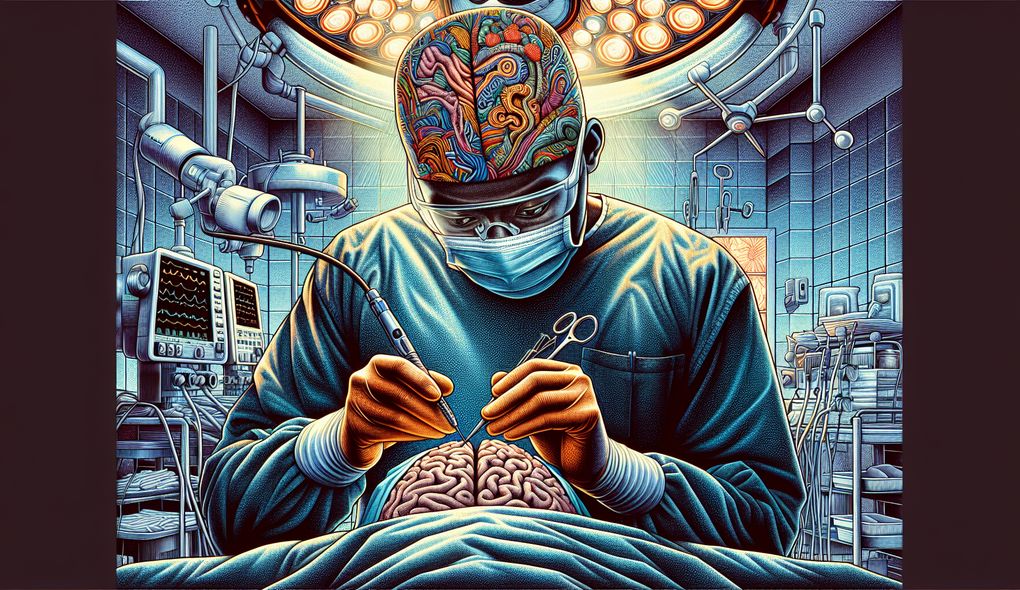How do you handle the pressure and stress associated with being a neurosurgeon?
INTERMEDIATE LEVEL

Sample answer to the question:
As a neurosurgeon, I handle the pressure and stress by utilizing a combination of strategies. First, I prioritize self-care by maintaining a healthy work-life balance. This includes regular exercise, adequate sleep, and spending quality time with loved ones. Additionally, I practice mindfulness and stress-reducing techniques such as deep breathing and meditation. When faced with challenging situations, I rely on my exceptional surgical skills and extensive knowledge of neuroanatomy and diseases to make critical decisions with confidence. Effective communication is key in managing stress, so I ensure open and honest lines of communication with patients, families, and medical staff. Finally, I am committed to continuous learning, which helps me stay updated on advanced surgical techniques and technologies, contributing to my ability to handle pressure in a high-stress environment.
Here is a more solid answer:
As a seasoned neurosurgeon, I have honed my ability to handle pressure and stress by implementing a range of strategies. Firstly, I prioritize self-care by engaging in regular exercise, practicing mindfulness, and maintaining a healthy work-life balance. These practices ensure that I am physically and mentally prepared to perform at my best in high-pressure situations. Additionally, my extensive experience and expertise in neurosurgery allow me to make critical decisions confidently. I rely on my exceptional surgical skills and in-depth understanding of neuroanatomy and diseases to navigate complex cases with precision and efficiency. Moreover, my effective communication skills enable me to collaborate seamlessly with patients, families, and medical staff, ensuring that everyone involved is well-informed and engaged in the treatment process. Lastly, I am committed to continuous learning and professional development, regularly attending conferences, workshops, and staying updated on the latest advancements in the field. This dedication helps me stay ahead of the curve and adapt effectively to new challenges, further enhancing my ability to handle pressure in a high-stress environment.
Why is this a more solid answer?
The solid answer provides specific details about the candidate's self-care practices, experience, expertise, effective communication skills, and commitment to continuous learning. However, it can be further improved by including tangible examples or achievements that demonstrate the candidate's ability to handle pressure and stress.
An example of a exceptional answer:
Handling the pressure and stress associated with being a neurosurgeon is an area where I excel. Over the years, I have developed a comprehensive approach that allows me to thrive in high-stress situations. Firstly, I prioritize self-care by engaging in regular exercise, maintaining a healthy diet, and practicing mindfulness and meditation. These habits help me stay mentally and physically prepared to tackle the challenges of neurosurgery. Secondly, I have a track record of making critical decisions under pressure. For example, during a complex brain tumor resection, I encountered unexpected complications requiring swift action. Drawing on my extensive knowledge and expertise, I swiftly adjusted the surgical approach, successfully resolving the issue and ensuring the best outcome for the patient. Additionally, my effective communication skills enable me to build rapport with patients and their families, providing reassurance and instilling trust in the treatment process. Lastly, my commitment to continuous learning and professional development is exemplified by my active involvement in research initiatives and my role as a mentor to junior neurosurgeons. By staying at the forefront of advancements in neurosurgery and sharing my knowledge, I contribute to the progressive development of the field. These experiences have equipped me with the resilience, adaptability, and emotional intelligence required to handle the pressure and stress associated with being a neurosurgeon.
Why is this an exceptional answer?
The exceptional answer demonstrates the candidate's ability to handle pressure and stress by providing specific examples of past experiences. It showcases the candidate's self-care practices, expertise in making critical decisions under pressure, effective communication skills, and commitment to continuous learning. The examples provided bring the candidate's capabilities to life and paint a clear picture of their ability to excel in a high-stress environment.
How to prepare for this question:
- 1. Develop healthy coping mechanisms: Practice stress-reducing techniques such as deep breathing, meditation, or exercise to help manage pressure and stress effectively.
- 2. Enhance knowledge and expertise: Stay updated with the latest advancements in neurosurgery through continuous learning, attending conferences, and participating in research initiatives.
- 3. Improve communication skills: Work on developing effective communication skills, especially when interacting with patients, families, and medical staff, to ensure clear and transparent communication during high-pressure situations.
- 4. Build resilience: Seek opportunities to challenge oneself in stressful situations and develop a resilient mindset to handle pressure and stress.
- 5. Seek mentorship: Connect with experienced neurosurgeons to gain guidance and insights on managing pressure and stress in the field.
- 6. Practice time management: Develop strategies to prioritize tasks and manage time effectively, minimizing stress in a high-demand profession like neurosurgery.
What are interviewers evaluating with this question?
- Ability to make critical decisions under pressure
- Effective communication skills
- Commitment to continuous learning and professional development

